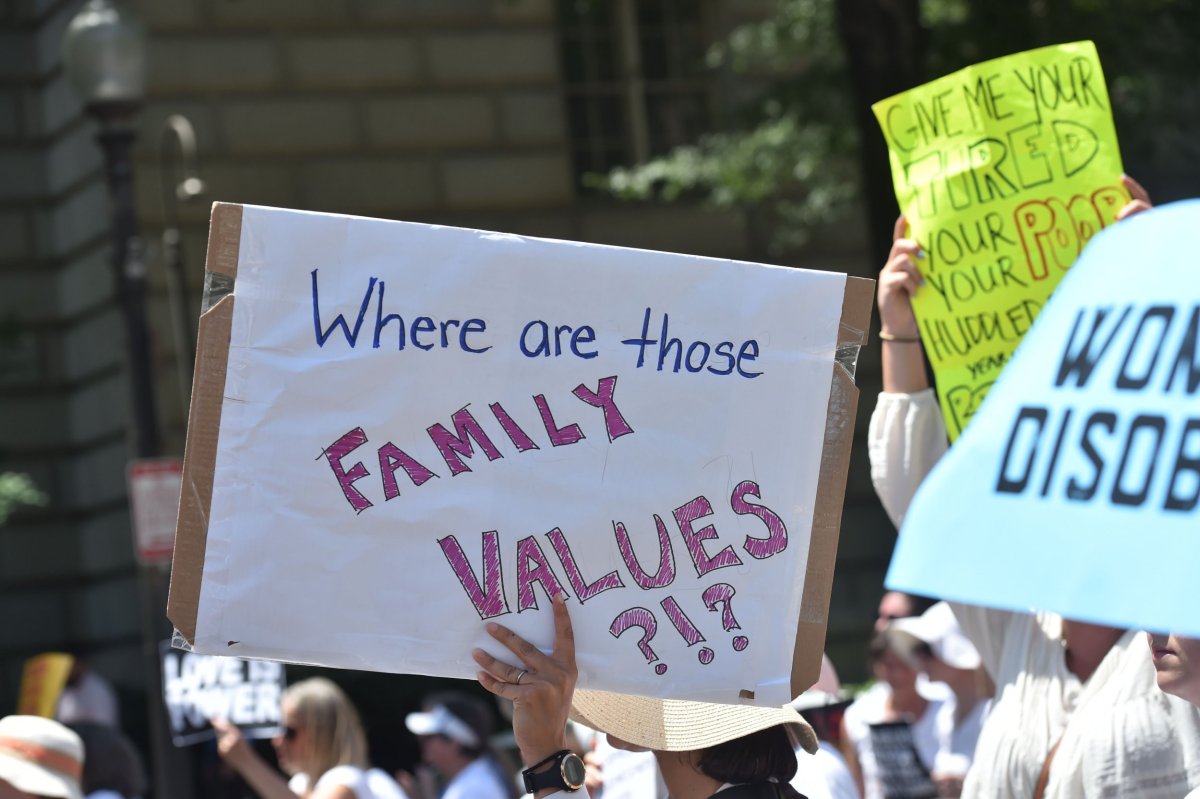The Trump administration has argued that the government has no "constitutional duty" to provide mental health treatment to immigrant families separated at the U.S.-Mexico border under President Donald Trump's "zero tolerance" immigration policy.
A Justice Department attorney made the claim on Monday in response to a class action lawsuit from three mothers who were separated from their children. The policy saw around 2,500 children separated from their parents at the southern border before Trump rescinded the rule on June 20 after facing widespread backlash.
Related: Stephen Miller wants new family separations plan because he thinks it worked the first time
In their lawsuit, which was launched in July, the three mothers argue that families affected by the Trump administration's child separation practice should be entitled to mental health care to address the trauma they have suffered due to the government's actions.
In one such case, a Guatemalan mother identified only as "J.P.," was separated from her 16-year-old daughter, "L.P.," at the U.S.-Mexico border, with the mother being held in a detention facility in Orange County, California, while her daughter was taken into federal custody at a Southwest Key Programs shelter in Phoenix, Arizona, the state in which they were arrested.
J.P. had limited contact with her daughter and was found to have been suffering from symptoms of post-traumatic stress disorder (PTSD), depression and anxiety, without being afforded access to mental health treatment while in federal custody.
The mother and daughter have since been reunited, but, along with the other plaintiffs in the class action suit, J.P. is fighting for the Trump administration to provide the mental health care she says her family needs after surviving the ordeal.
However, in a memorandum in support of a motion to dismiss the case, Department of Justice attorney Michael Heyse argued that the plaintiffs had "failed to establish" that the government should "owe" them "any statutory or constitutional duty to provide the undefined post-release care they appear to be seeking."
In the memorandum, which was shared online by Courthouse News, Heyse asserted that "due process" only "requires that detained individuals receive adequate mental health care and treatment while detained."
"The Government provided such care, and its obligations to provide any care terminated upon release of Plaintiffs from custody," the DOJ attorney said. "Contrary to Plaintiffs' claim, they do not have a right to some form of ongoing psychological treatment, outside of Government custody, or treatment of Plaintiffs' choosing."
In an excerpt providing background information on the case, Heyse accused plaintiffs of seeking "compensatory damages disguised as injunctive relief."
Noting that plaintiffs who are seeking an injunction must "demonstrate that they are 'realistically threatened by a repetition of [their] experience,'" the DOJ attorney argued that "Plaintiffs' fears of future harm if they were again separated require speculation far too excessive to warrant injunctive relief now."
"The Government does not owe a free-standing duty to provide medical care to former detainees," Heyse maintained, demanding that the case, which is before the U.S. District Court of the Central District of California, be dismissed or transferred to the U.S. District Court for the District of Columbia.

Uncommon Knowledge
Newsweek is committed to challenging conventional wisdom and finding connections in the search for common ground.
Newsweek is committed to challenging conventional wisdom and finding connections in the search for common ground.
About the writer
Chantal Da Silva is Chief Correspondent at Newsweek, with a focus on immigration and human rights. She is a Canadian-British journalist whose work ... Read more
To read how Newsweek uses AI as a newsroom tool, Click here.








